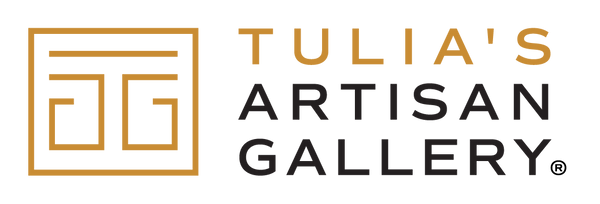The Wounaan are native to the Pacific coast of Colombia and Panama. Approximately 16,000 Wounaan live in the two countries and while in Panama they live in relative peace, in Colombia, about 9,000 are at risk of cultural extinction. Most live in 34 villages along riverbanks in the rainforests of Chocó, one of the wettest places in the world. The primary mode of transportation is boat or canoe. They hunt, fish, and cultivate crops including plantain, corn, yucca, and sugar cane.

FORCED TO LEAVE HOME For centuries Wounaan villages relied on the rainforest to provide food, medicine, and raw materials. Today, Wounaan live under constant threat by illegal armed groups such as National Liberation Army (ELN) guerillas, paramilitary, and narco-traffickers active in Chocó. ELN recruit teenagers and carry lists of names of youth they are targeting. Adults are attacked or threatened in order to gain information on leaders or potential recruits. Others are simply told to leave by a certain date or face death. Families that move within Chocó risk illness and malnutrition. Families that displace to large cities, such as Bogotá or Buenaventura, struggle with the shock of losing their rainforest, community, and transitioning to urban life.

LIFE IN BOGOTÁ The Wounaan community has grown to 157 families with more families trickling in every month. With the direct threat of violence reduced, the hurdle now is creating a livelihood without losing identity. Adults struggle to find jobs and worry about teaching culture and language to children born and raised in the city. They have lost their supermarket, their drug store, their school, their farm, and their cultural way of life. Wounaan leaders recognize culture shock and lost traditions opens a door for teens and young adults to fall victim to addictions, gangs, or the sex trade.
RESISTING CULTURAL EXTINCTION The Wounaan Nonam community in Bogotá endeavors to preserve language, culture, and ancestral traditions. After a student was reprimanded for speaking Woun Meu at school, elders successfully petitioned the Ministry of Education to pay for Woun Meu lessons in the local elementary school. They have established the Maach Den Foundation (Fumaachden), to maintain and strengthen the values and identity of Wounaan Nonam in Bogotá. Their projects include building a workshop for jewelry making and weaving, buying land back in Chocó for planting palm trees, eye exams and glasses for weavers in Bogota and Chocó, and access to primary and emergency health care in Chocó.

MASTER MAKERS: Despite these challenges, the Wounaan are master artisans. The men are expert wood carvers and the women are known for their basketry, recognized as among the most beautiful in the world. Their signature fiber is the new shoots of the Chunga Palm Tree. When dry, the fiber has a brilliant & smooth shine. They are the artists behind our collections of woven earrings, woven bracelets, children's bracelets, palm seed rings, home decor art baskets, and the TAVWE collection. All are made by Wounaan Nonam living in Bogotá or villages along the shores of the Baudó River.


